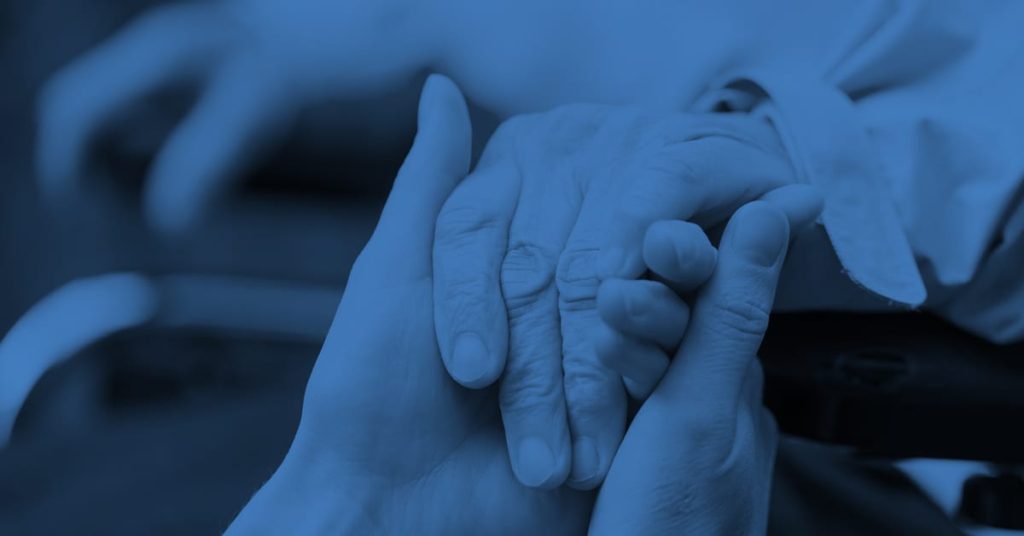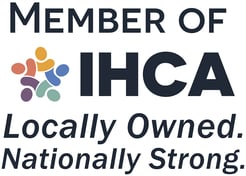In today’s day and age, people are moving more quickly than ever. With all the hustle and bustle, seniors often feel as though they will become a burden if they ask a family member for help. In fact, seniors are far more likely to share their inadequacies and doubts with a professional than with a loved one. For this reason, it is important to be aware of the signs that should initiate a conversation about bringing in a caregiver to provide additional assistance.
You or your loved one might keep a messier home.
The dishes are left undone, the laundry is piling up, and the garbage rarely makes it out of the house in time for the garbageman to pick it up. An unkempt home can indicate that these and other household chores have become too difficult and that you or your loved one could benefit from a caregiver’s assistance.
You or your loved one may neglect his or her nutrition.
Expired foods fill the refrigerator, frozen meals fill the freezer, and the cupboard contains either multiples of the same item or few items that can be made edible. These signs can indicate that you or your loved one may need a caregiver’s help getting to the grocery store and/or preparing meals altogether.
You or your loved one experiences more frequent health issues.
You may notice that you or your loved one took much longer to recover from his or her most recent bout of illness, or has developed progressive or chronic health conditions. Caregivers can help note any changes in appearance, like weight gain or weight loss, as well as promote a faster recovery by being able to lend a hand.
You or your loved one might notice increased forgetfulness.
Missing appointments, wallets, and car keys are natural, telltale signs that you or your loved one are getting older. However, forgetfulness can also be an early warning sign of Alzheimer’s disease or other forms of dementia. A caregiver can not only help ensure that you or loved one doesn’t’ forget anything too major, but also that the forgetfulness doesn’t progress into something more serious.
You or your loved one might notice an increase in falls or injuries.
Frequent falls are often an indication that you or your loved one has difficulty walking, suffers from vertigo, or has diminished motor skills. Look for bruising and discoloration, or a decreased desire to leave home. A caregiver can help reduce the risk of injury by providing mobility support and a watchful eye.
You or your loved one may not prioritize good hygiene.
While poor hygiene can be the result of mild cognitive impairment, it is often a side effect of poor mobility. Just as seniors often experience a decreased desire to leave home for fear of falling, some seniors avoid showering for fear of slipping and being found too late. Even if you or your loved one doesn’t need help bathing yet, having a caregiver around in case of a fall can provide much-needed peace of mind.
You or your loved one might notice a change in personality.
Increased moodiness can be a sign of depression brought on by aging and the fear of losing independence. A caregiver can not only provide companionship, but also the reassurance that you or your loved one can remain comfortably at home. Caregivers can provide as much or as little as you or your loved one needs to continue living safely and peacefully. Keep in mind, that changes in personality can also indicate Alzheimer’s and should not be taken too lightly.
You or your loved one may find driving increasingly difficult or even dangerous.
You may notice an increase in defensive behavior regarding you or your loved one’s driving ability, a decrease in any desire to drive altogether, or an increase in nicks and dents on you or your loved one’s vehicle. Be mindful of whether or not you or your loved one remember to put on a seatbelt, how often you or your loved one becomes distracted, and any other “gut feelings” you experience regarding you or your loved one’s driving skills. Those gut feelings are right more often than not, and a caregiver can provide peace of mind without compromising you or your loved one’s independence.
You or your loved one might exhibit patterns of social isolation.
Like with personality changes, social isolation can indicate that you or your loved one are experiencing difficulty managing declining conditions and are too afraid, too depressed, or too proud to ask for assistance. A caregiver can provide much-needed companionship and make sure that you or your loved one can remain in the comfort of home for as long as possible.
If you or your loved one has exhibited any of these signs, we encourage you to contact Senior Solutions Home Care to set up an informal evaluation. 9 out of 10 seniors would most like to age within the comfort of their own home, and our team will be able to assess your unique situation and determine the best, personalized plan to suit your needs. An in-home caregiver from Senior Solutions can provide support with bathing, dressing, grooming, mobility, transportation, meal preparation, companionship, and many other daily activities, empowering you or your loved one to live the healthiest, happiest life possible. Contact us to get started today!
In addition to home care solutions, take advantage of our transition solutions to learn >all long-term care options available to you. We will stop at nothing to make sure that you have all the resources and support you need during your transition, whether that be into home care, an assisted living facility, or a nursing home. Learn more about our transitions solutions here.
- Public Health in the Age of COVID - September 15, 2021
- World Elder Abuse Day June 15, 2021 - June 28, 2021
- World Elder Abuse Day - June 15, 2021




